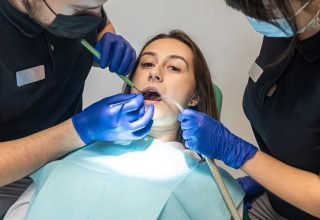A Comprehensive Guide To Preventing Tooth Decay: Tips And Strategies
In a world where sugary treats and fast food are ubiquitous, maintaining oral hygiene can be quite a challenge. But maintaining healthy teeth is an essential aspect of overall well-being. Tooth decay can lead to cavities, gum diseases, and even tooth loss, leading to costly procedures like root canals, fillings, and tooth extractions.
Today, we will take you on an insightful journey through a comprehensive guide to prevent tooth decay and preserve that beautiful smile of yours.
Follow these tips and strategies to maintain optimal oral health.
Regular Check-Ups And Cleanings
Regular dental check-ups and professional cleanings are a must for maintaining oral hygiene. These appointments are more than just an opportunity to showcase your pearly whites. Your dentist can identify early signs of tooth decay, gum disease, or oral cancer that you might not be able to spot on your own. A check-up every six months is generally recommended. However, if you notice any issues in between your visits, make an appointment immediately.
Suppose you had to undergo a tooth extraction in Raleigh, NC. The chances are that with regular check-ups, the tooth decay that led to the extraction could have been caught and addressed at an earlier stage, preventing the need for extraction in the first place. Therefore, always make sure to prioritize your dental appointments.
Proper Brushing And Flossing
Brushing and flossing should be as integral to your routine as eating. Dentists recommend brushing at least twice a day, for two minutes each time. Remember to use fluoride toothpaste, which helps to harden tooth enamel and reduce the risk of decay. Don’t forget to brush your tongue, too, as it can harbor bacteria.
Flossing once a day is just as important as brushing since it helps to remove food particles and plaque from between your teeth and gums that your toothbrush can’t reach. This reduces the likelihood of cavities and gum disease.
Mindful Eating
Diet plays a significant role in oral health. Foods high in sugars and carbohydrates can feed the bacteria in your mouth, leading to tooth decay. Limit these types of foods and beverages and replace them with healthier options like fruits, vegetables, dairy products, and high-fiber foods. Drink plenty of water to help wash away food particles and bacteria.
Fluoride Treatments
Fluoride treatments can be beneficial in preventing tooth decay. Fluoride not only reduces the risk of decay but can also reverse the early stages of decay. Ask your dentist about the benefits of fluoride treatments and if they are a good fit for your oral health needs.
Sealants
Dental sealants are another effective strategy to prevent tooth decay. A sealant is a protective coating applied to the back teeth’s chewing surfaces. It seals off grooves and crannies that can collect food, protecting tooth enamel from plaque and acid. While sealants are often recommended for children, adults can benefit from them too.
Conclusion
Tooth decay doesn’t happen overnight. It’s the result of neglecting oral hygiene over a long period. However, the good news is that it is preventable. By incorporating the above tips and strategies into your daily routine – regular check-ups, brushing and flossing, mindful eating, and considering fluoride treatments and sealants, you can significantly reduce your risk of tooth decay.
Remember, your smile is an integral part of your personality, and maintaining your oral health is the best gift you can give it. So, take the first step towards a healthier smile today!
Read Also:
- Tooth Cap Vs. Crown: What’s The Difference And Which Is Best For You?
- Root Canal Cracked Tooth – What To Do? Is It Treatable? [Dental Guide]
- 7 Things to Think About When Getting Tooth Aligners



